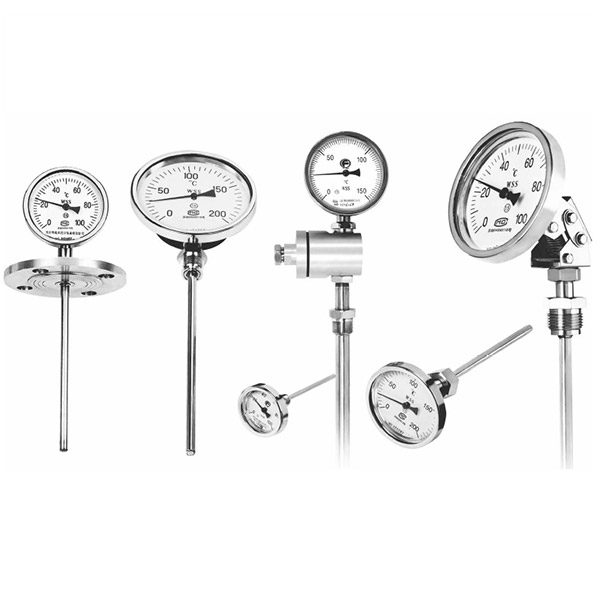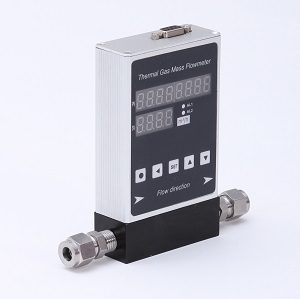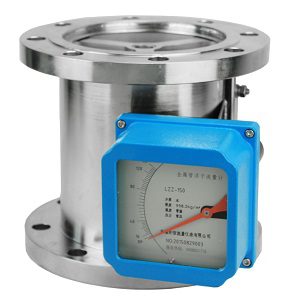Bimetallic Thermometer
A bimetallic thermometer is a type of temperature measurement device that uses two different metals with different coefficients of thermal expansion to measure temperature changes. It consists of a thin, coiled bimetallic strip that is fixed at one end and free to move at the other. The strip is made of two different metals, typically brass and steel, which are bonded together. When the temperature changes, the two metals expand or contract at different rates, causing the strip to bend or straighten.
The amount of bending or straightening of the strip is directly proportional to the temperature change. The movement of the strip is transferred to a mechanical indicator or pointer, which displays the temperature on a calibrated scale.
Bimetallic thermometers are commonly used in industrial applications where temperature measurement is required, such as in heating and cooling systems, boilers, ovens, and furnaces. They are inexpensive, easy to use, and require no external power source or calibration. They also offer a wide temperature range, typically from -50°C to 500°C (-58°F to 932°F).
One disadvantage of bimetallic thermometers is their relatively slow response time, which can limit their use in applications where rapid temperature changes occur. They are also not as accurate as other types of temperature measurement devices, such as RTDs and thermocouples.
In summary, bimetallic thermometers are a simple and reliable way to measure temperature changes in a variety of industrial applications. They offer a wide temperature range and require no external power source, making them a popular choice for many applications. However, their slow response time and lower accuracy should be considered when selecting a temperature measurement device for a specific application.
Read more: https://www.silverinstruments.com/product/temperature-measurement/bimetallic-thermometer.html





